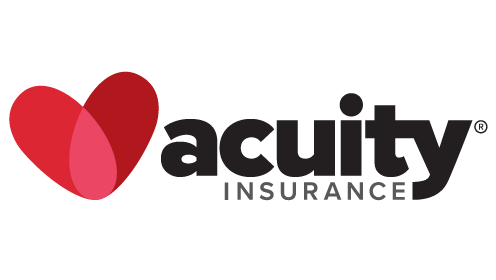NerdWallet’s editorial team collected data on 15 auto insurers in Georgia and scored them for a variety of factors, including customer experience, online features and discounts. We chose Amica for the top spot in the state, but plenty of other car insurance companies also earned high ratings.
Our March 2026 picks for the best car insurance companies in Georgia are:
Category winner | NerdWallet star rating |
|---|---|
Best overall car insurance company: Amica | |
Best budget pick: Central Insurance | 4.6NerdWallet rating |
Best for customer satisfaction: Acuity | |
Best for coverage add-ons: Progressive | |
Best for bundling: American Family |
For our list of the best car insurance companies in Georgia, we only considered insurers that achieved a minimum NerdWallet star rating of 4.5. As we continue to evaluate more insurance providers and receive fresh market data, our list of best car insurance companies may change.
NerdWallet’s editorial team considers these factors when choosing the best auto insurance companies:
Financial strength. We use AM Best ratings to confirm an insurer’s long-term financial stability and ability to pay claims.
Consumer experience. These ratings are based on complaints to state regulators relative to a company’s size, according to three years’ worth of data from the National Association of Insurance Commissioners (NAIC). We also look at survey data from J.D. Power’s yearly national and regional studies.
Digital ease of use. This category looks at how easily consumers can interact with an insurer through its mobile app and website. This includes the quality of information offered online, mobile app scores based on Apple and Google Play store ratings, and whether a user can start and track a claim, or get a quote online.
Ways to save. We look at the kinds of discounts a company offers and the total number of discounts available.
You can read our full auto insurance methodology to learn more.
Strict editorial guidelines to ensure fairness and accuracy in our coverage.
Thorough rating guidelines for evaluating auto insurance companies.
More than 120 million rates analyzed by our team of specialists.
More than 130 insurance companies analyzed in all 50 states and Washington D.C.
You can trust the prices we show because our data analysts take rigorous measures to eliminate outliers and inaccuracies in pricing data, which includes rates from every locale in a state where coverage is offered and data is available. When comparing rates for different coverage amounts, ages and backgrounds, we change only one variable at a time, so you can easily see how each factor affects pricing.



See what you could save on car insurance
Easily compare personalized rates to see how much switching car insurance could save you.
Best overall for car insurance in Georgia: Amica
Low consumer complaints and a wide variety of policy perks and discounts make Amica a top-rated choice for good drivers.
Discounts
Great set of discounts
Ease of use
Above average
NAIC complaints
Fewer than expected
Available in: AK, AL, AR, AZ, CA, CO, CT, DC, DE, FL, GA, IA, ID, IL, IN, KS, KY, LA, MA, MD, ME, MI, MN, MO, MS, MT, NC, ND, NE, NH, NJ, NM, NV, NY, OH, OK, OR, PA, RI, SC, SD, TN, TX, UT, VA, VT, WA, WI, WV, & WY.
Why Amica is the best: Amica is the best insurance company in Georgia because of its wide selection of discounts, sharp digital features and excellent customer satisfaction. While not a factor in its rating, Amica's coverage options compare well to other top competitors in Georgia.
One standout feature is Amica’s reputation for customer satisfaction. Amica earns fewer complaints than expected for a company of its size, and scores above average in the J.D. Power Claims Satisfaction Study.
Besides being our top car insurance company in Georgia, Amica could be a good option if you want to bundle your auto and home or auto and renters insurance policies.
Unfortunately, we don’t have rates from Amica in the state, so you’ll want to compare car insurance quotes to make sure its cost fits within your budget.
Don’t pick Amica if: You haven’t gotten rates from other insurance companies first. Although we don’t have pricing data for Amica in Georgia, the insurer can be more expensive than average for some drivers in other states.
» Read the full review: Amica auto insurance review
Driver profile Full coverage rate Minimum coverage rate Clean driving record, good credit $3,167 $1,089 One speeding ticket, good credit $4,114 $1,372 One at-fault crash, good credit $3,957 $1,505 One DUI, good credit $11,783 $3,661 Clean driving record, poor credit $9,541 $1,854
Best for shopping on a budget: Central Insurance
Central offers a wide selection of coverage packages, as well as a la carte coverage, in 25 states.
Discounts
Great set of discounts
Ease of use
Above average
NAIC complaints
Far fewer than expected
Available in: AZ, CO, CT, GA, ID, IL, IN, KY, MA, MD, MI, NC, NH, NM, NV, NY, OH, OK, PA, SC, TN, TX, UT, VA, & WI.
Why Central Insurance is the best: We rated Central highly for cost-conscious drivers in Georgia because it has some of the state’s best rates for good drivers. According to our March 2026 analysis, Central may also have cheaper rates than average for drivers with an accident or violation on their records.
Besides low costs, Central offers a few coverage packages that may include roadside assistance at no additional cost, plus gap insurance, original parts coverage and agreed value coverage. Agreed value coverage pays out a pre-agreed amount if your car is totaled.
Don’t pick Central Insurance if: You don’t want to talk to an agent to get a quote. If you’re uncomfortable speaking with someone to get insurance, you’ll want to find another insurer that lets you complete the quote process online.
How much is Central car insurance in Georgia? The average cost of car insurance from Central for someone with a clean driving record is $147 per month, or $1,765 per year in Georgia. That’s compared to the statewide average, which is $3,269 per year.
Driver profile Full coverage rate Minimum coverage rate Clean driving record, good credit $1,765 $488 One speeding ticket, good credit $2,262 $678 One at-fault crash, good credit $2,684 $841 One DUI, good credit $4,449 $1,517 Clean driving record, poor credit $3,203 $854
Best if you need to make a claim: Acuity
In addition to receiving fewer complaints than expected for a company of its size, Acuity offers many common car insurance discounts as well as a variety of other types of insurance.
Discounts
Great set of discounts
Ease of use
Above average
NAIC complaints
Far fewer than expected
Available in: AR, AZ, CO, GA, IA, ID, IL, IN, KS, ME, MN, MO, MT, ND, NM, NV, OH, OR, PA, SD, TN, TX, UT, VA, VT, WI, & WY.
Why Acuity is the best: Acuity earns far fewer complaints from policyholders than expected for its size. In fact, it has the best complaint rating of top-rated insurance companies in Georgia.
Besides its complaint rating, Acuity compares well to other insurance companies in Georgia for the coverage it offers. You could add gap insurance (possibly a must-have if you lease or finance your car with a loan) as well as coverage for your personal property and emergency expenses, like transportation and lodging after you're stranded.
Don’t pick Acuity if: You haven’t gotten a quote from another company first. We don’t have rates in Georgia for Acuity. You’ll want to make sure that it’s an affordable option before you purchase a policy.
Driver profile Full coverage rate Minimum coverage rate Clean driving record, good credit $3,346 $602 One speeding ticket, good credit $5,848 $1,163 One at-fault crash, good credit $5,747 $1,105 One DUI, good credit $6,721 $1,286 Clean driving record, poor credit $5,092 $894
Best for coverage options: Progressive
Full coverage
$188 /month
Liability only
$68 /month
Progressive offers a variety of discounts and insurance products to cater to most people, though there’s room for improvement when it comes to customer satisfaction.
Discounts
Great set of discounts
Ease of use
Above average
NAIC complaints
Fewer than expected
Available in: AK, AL, AR, AZ, CA, CO, CT, DC, DE, FL, GA, HI, IA, ID, IL, IN, KS, KY, LA, MA, MD, ME, MI, MN, MO, MS, MT, NC, ND, NE, NH, NJ, NM, NV, NY, OH, OK, OR, PA, RI, SC, SD, TN, TX, UT, VA, VT, WA, WI, WV, & WY.
Why Progressive is the best: Progressive has a long list of optional types of car insurance. A full coverage policy comes with up to $1,000 of coverage if your pet is injured in a car accident. You can also add custom parts coverage, gap insurance, accident forgiveness and coverage for some of your car’s mechanical systems.
Progressive also offers better rates in Georgia than many competitors, even if your driving record isn’t spotless. You may be able to lower your rates even more with Progressive’s great set of discounts.
Don’t pick Progressive if: You want insurance from a company that has the best overall customer experience ratings. We scored Progressive relatively well for its complaint rating, but Progressive suffers from ranking lower than average on the J.D. Power Auto Claims Satisfaction Study.
How much is Progressive car insurance in Georgia? The average cost of car insurance from Progressive for someone with a clean driving record is $188 per month, or $2,254 per year in Georgia. That’s compared to the statewide average, which is $3,269 per year.
Driver profile Full coverage rate Minimum coverage rate Clean driving record, good credit $2,254 $822 One speeding ticket, good credit $2,789 $989 One at-fault crash, good credit $3,704 $1,368 One DUI, good credit $3,447 $1,235 Clean driving record, poor credit $3,372 $1,197
Best for bundling car insurance: American Family
American Family offers a wide range of coverage, including rideshare and gap insurance, but doesn’t sell policies in all states.
Discounts
Great set of discounts
Ease of use
Above average
NAIC complaints
Fewer than expected
Available in: AZ, CO, GA, IA, ID, IL, IN, KS, MN, MO, ND, NE, NV, OH, OR, SD, UT, WA, & WI.
Why American Family is the best: We chose American Family as the best choice in Georgia for drivers looking to bundle their home and auto insurance in part because of its bundling discount. By combining policies, you could save up to 40% on your combined costs.
American Family is also a great option even for drivers who don’t want or need to bundle. It has a range of potential car insurance add-ons, including accident forgiveness, gap insurance, original parts coverage, and accidental death & dismemberment coverage.
Don’t pick American Family if: You haven’t compared rates yet. Like some other top insurers in this study, we don’t have rates from American Family in Georgia. That said, American Family has a great set of discounts that could help you to lower your rates.
» Read the full review: American Family auto insurance review
Driver profile Full coverage rate Minimum coverage rate Clean driving record, good credit $2,676 $801 One speeding ticket, good credit $3,216 $958 One at-fault crash, good credit $3,486 $1,094 One DUI, good credit $3,509 $977 Clean driving record, poor credit $4,053 $1,156
All of the top-rated insurance companies in Georgia
The best car insurance company for you will depend on personal characteristics like your driving history, budget, coverage needs and vehicle. Because these factors are different for each driver, there isn’t one company that’s best (or cheapest) for everyone.
Of all of the top-rated car insurance companies in Georgia, these are the ones we think are best for certain types of drivers:
Company | Star rating |
|---|---|
Best car insurance in Georgia: Amica | |
Best for affordability: Central Insurance | 4.6NerdWallet rating |
Best for customer satisfaction: Acuity | |
Best for coverage options: Progressive | |
Best for bundling home and auto: American Family | |
Best for high-risk drivers: Direct Auto | |
Best for parents of young drivers: Country Financial | |
Best for savings opportunities: Travelers | |
Best for military families: USAA* | |
*USAA is available only to active-duty military members, veterans and their families. | |
What to know about car insurance in Georgia
For the most part, car insurance works similarly in Georgia as it does in most other states. At the same time, understanding the coverage you need and the kind of damage your policy will pay for can help you know what to expect after an accident.
Georgia requires two types of liability insurance:
Bodily injury liability insurance: Pays for the cost of another person’s injuries after an accident you’re responsible for. A minimum policy in Georgia covers $50,000 per accident, with a max of $25,000 per injured person.
Property damage liability insurance: Covers property damage that you cause to others, including their car. A minimum policy in Georgia will cover up to $25,000 of coverage per accident.
Most drivers need more insurance than what Georgia requires. Neither type of liability insurance provides coverage for your own car if you’re at fault for a crash. You’d need a full coverage policy with comprehensive and collision insurance to avoid completely paying for this type of damage on your own.
The average cost of car insurance in Georgia is $3,269, but it depends on how much coverage you have and your driving record. Other details like your age, where you live, your car and your insurance company will also affect your rates. Here is the cost of car insurance in the state for different drivers:
Driver profile Full coverage rate Minimum coverage rate Clean driving record, good credit $3,269 $1,080 One speeding ticket, good credit $4,390 $1,329 One at-fault crash, good credit $5,047 $1,674 One DUI, good credit $5,320 $1,826 Clean driving record, poor credit $5,770 $1,547 It may be hard for some drivers to find car insurance because of their driving record. If you have been in multiple accidents or gotten cited for driving violations, you could still get enough car insurance to legally drive through the Georgia Automobile Insurance Plan.
How to get the best car insurance in Georgia
There are many more insurance companies in Georgia than the ones we’ve called out here. If you’re unsure which one is right for you, or you want to do some research on your own, you can follow these steps while shopping for car insurance.
Understand the coverage you need. Car insurance is already expensive. While NerdWallet recommends getting more insurance than what Georgia requires, you don’t want to end up paying for insurance you don’t actually need.
Know the type of company that you’re looking for. Some insurers are better suited to drivers looking for cheap rates; others best match drivers looking for robust coverage options or consistently reliable service. Having a handle on what you prefer in an insurance company can help you decide on the right insurer.
Consider other factors. One particular detail can greatly influence which insurer is the best for you. Your list of top companies may change if you work from home and almost never drive, want to bundle policies or need coverage for a new driver in your family.
Shop around at least once a year. The cost of car insurance changes regularly. Before you buy a policy, shop around and compare rates from a few car insurance companies to be sure that yours is still the best choice for your budget.
Don’t shy away from smaller insurers. A small, regional insurance company in Georgia may line up best with your coverage needs and budget. An agent or broker could help you find local insurance companies in your area.
» MORE: How to get car insurance
NerdWallet writers are subject matter authorities who use primary, trustworthy sources to inform their work, including peer-reviewed studies, government websites, academic research and interviews with industry experts. All content is fact-checked for accuracy, timeliness and relevance. You can learn more about NerdWallet's high standards for journalism by reading our editorial guidelines.
- 1.J.D. Power. 2025 U.S. Auto Claims Satisfaction Study. Accessed Feb 9, 2026.
Auto insurance ratings methodology
NerdWallet’s auto insurance ratings reward companies for customer-first features and practices. Ratings are based on weighted averages of scores in several categories, including financial strength, consumer complaints and discounts. Our “ease of use” category looks at factors such as website transparency and how easy it is to file a claim. Using our editorial discretion, we also consider customer satisfaction surveys. These ratings are a guide, but we encourage you to shop around and compare several insurance quotes to find the best rate for you. NerdWallet does not receive compensation for any reviews. Read our editorial guidelines and full ratings methodology for auto insurance.
Here’s how we evaluated each car insurance company and the weights we placed on each category:
Financial strength (30%).
Consumer complaints (30%).
Ease of use (20%).
Affordability (20%).
The best auto insurers excel at all of these categories. They provide the information people need to make a purchase without any surprises along the way. They offer insurance at a fair price and provide more than one way to buy and manage a policy. They're financially strong and able to keep their customers happy throughout the relationship.
Insurer complaints methodology
NerdWallet examined complaints received by state insurance regulators and reported to the National Association of Insurance Commissioners in 2022-2024. To assess how insurers compare to one another, the NAIC calculates a complaint index each year for each subsidiary, measuring its share of total complaints relative to its size, or share of total premiums in the industry. To evaluate a company’s complaint history, NerdWallet calculated a similar index for each insurer, weighted by market shares of each subsidiary, over the three-year period. NerdWallet conducts its data analysis and reaches conclusions independently and without the endorsement of the NAIC. Ratios are determined separately for auto, home (including renters and condo) and life insurance.
Average rates methodology
NerdWallet averaged rates based on public filings obtained by pricing analytics company Quadrant Information Services. We examined rates for men and women for all ZIP codes in any of the 50 states and Washington, D.C. Although it’s one of the largest insurers in the country, Liberty Mutual is not included in our rates analysis due to a lack of publicly available information.
In our analysis, “good drivers” had no moving violations on record; a “good driving” discount was included for this profile. Our “good” credit rates are based on credit score approximations and do not account for proprietary scoring criteria used by insurance providers.
These are median rates, and your rate will vary based on your personal details, state and insurance provider.
Sample drivers had the following coverage limits:
$100,000 bodily injury liability coverage per person.
$300,000 bodily injury liability coverage per crash.
$50,000 property damage liability coverage per crash.
$100,000 uninsured motorist bodily injury coverage per person.
$300,000 uninsured motorist bodily injury coverage per crash.
Collision coverage with $1,000 deductible.
Comprehensive coverage with $1,000 deductible.
In states where required, minimum additional coverages were added. We used the same assumptions for all other driver profiles, with the following exceptions:
For drivers with minimum coverage, we adjusted the numbers above to reflect only the minimum coverage required by law in the state.
For drivers with one at-fault crash, we added a single at-fault crash costing $10,000 in property damage.
For drivers with a DUI, we added a single drunken-driving violation.
For drivers with a ticket, we added a single speeding violation for driving 16 mph over the speed limit.
We used a 2023 Toyota Camry LE in all cases and assumed 12,000 annual miles driven. We analyzed rates for 35-year-old drivers.
These are rates generated through Quadrant Information Services. Your own rates will be different.








